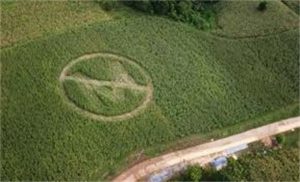
Have you noticed a weird pattern that whenever a mass-marketed fad fails after millions of dollars were invested in it, a new distraction appears to take your mind off the failure?
What do I mean? Watch the movie “Finding Nemo” where Dori, a high-energy ADD fish, is constantly losing her focus to follow any distraction that pops up.
When profits are lost or criminality is revealed … hey Dori – look over here!
I learned this tactic years ago when aspartame started losing profits, and I’m watching for something like this to happen concerning the failures of the COVID vaccines.
Wait for it ….
Remember that we always learn from our past!
Monsanto’s Failure

When things went south, Monsanto sold out.
In 1992, Monsanto’s patent on aspartame expired, and The NutraSweet Company lost their 20-year monopoly on aspartame. Sales declined as competitors came onto the diet sweetener market (Splenda® and Stevia), and concerns about aspartame health dangers were spreading worldwide. And at this time, GMOs started coming under scrutiny.
By March 2000, Monsanto decided to get out of the sweetener market and sold its sweetener business to J.W. Childs Equity Partners II, LP. The company competed for market share with other manufacturers, including Japan’s Ajinomoto Company, Inc. that acquired its aspartame share for $67 million US in 2000.
Ajinomoto’s international production and marketing network for aspartame had increased by May 2000 when two EU joint ventures became fully owned subsidiaries of Ajinomoto under the names Ajinomoto Switzerland A.G. and Ajinomoto Euro-Aspartame S.A.
December 6, 2004, Ajinomoto announced that it was investing JPY 6 billion ($58 million US) to expand its aspartame manufacturing plants in Yokkaichi, Japan and Gravelines, France. Expansion began at these two locations in early 2005 and was completed by March 2006.
Ajinomoto projected that it would remain the market leader in aspartame manufacturing, with a target goal of supplying more than half of the global aspartame market. They did not meet their expectations, however, and by 2009, Ajinomoto was researching new ways to improve aspartame’s market sales.
What did they do? Look over here …
Ajinomoto rebranded aspartame’s name and Japan’s “Pal Sweet Diet®” as “AminoSweet®“, and they replicated the 1982 American marketing campaign claiming that aspartame was all natural.
After all, this worked once before, and Ajinomoto had invested over $125 million US into aspartame, so they needed AminoSweet to successfully resurge.

As the COVID vaccine safety issues and the mainstream narrative continues on, wait for a distraction.
Look over here, Dori.
________________
If you want to learn more about healthy living, contact me at janethull.com. Remember that you are never alone when you are looking for good health!
_____________
Disclaimer: This article is for informational purposes only, and is educational in nature. The FDA may not have evaluated some of the statements. This article is not intended to diagnose, treat, cure, or prevent any disease. Please discuss with your own, qualified health care provider before adding supplements or making any changes to your dietary program.
Before taking vitamins, consult your doctor; pre-existing medical conditions or medications you are taking can affect how your body responds to multivitamins.
You have our permission to reprint this article if you attribute us with a live back-link to this article and the youtube links. https://janethull.com/